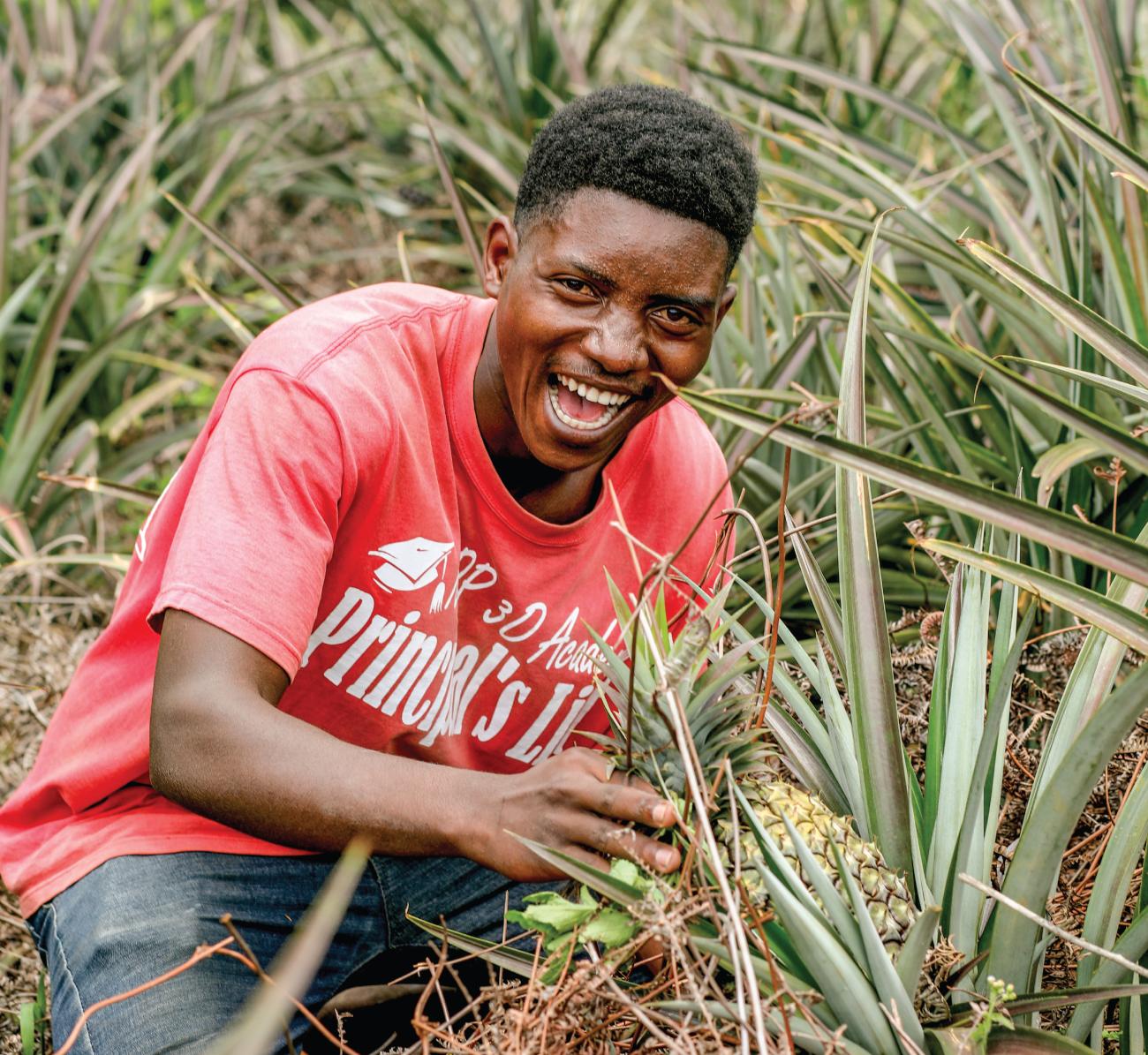The clock is ticking on the climate crisis, and farmers in Rwanda are stepping up to mitigate climate change through the UN Rwanda's Joint Programme Enhancing Climate Resilience and Integrated Agriculture in Disaster-Prone Areas of Rwanda. This collaborative effort, led by the United Nations Development Programme (UNDP) and the Food and Agriculture Organization of the United Nations (FAO), aims to make a difference in disaster-prone areas.
Unlocking the Power of Organic Fertilizers
Meet Petronile Nyiranzarindwanimana, a seasoned farmer residing in the Rulindo district, Northern Rwanda. She has over two decades of experience cultivating fruits and vegetables on a vast 50-acre land. Thanks to the Joint Programme, Nyiranzarindwanimana has undergone training in using organic fertilizers and is reaping incredible rewards.
"Before embracing organic fertilizers, my cabbage harvest weighed in at 6 tonnes. Now, not only do I yield the same quantity, but the fascinating thing is that the taste of organic cabbage has doubled the income I generate from selling my produce. I used to receive 100 Rwandan Francs per kilogram, but now it's a solid 180 Rwandan Francs," Nyiranzarindwanimana proudly shares. She chuckles as she adds, "I've realized that climate-smart agriculture truly pays off. Chemical fertilizers were expensive, requiring an investment of 300,000 Rwandan Francs. However, with organic fertilizers, I now invest a mere 180,000. My life has improved significantly. Just visit my home and witness how happy and healthy my children are. It's high time people consider agriculture as a respectable profession."
The Mighty Role of Organic Farming
Organic farming takes center stage in addressing climate change. By prioritizing natural methods and eschewing synthetic inputs like chemical fertilizers and pesticides, organic farming brings forth several positive impacts on climate change mitigation. These include reduced greenhouse gas emissions, improved soil health and carbon sequestration, lowered energy consumption, and enhanced water conservation.
Harnessing the Potential of Organic Pesticides
Therese Nzamwitakuze proudly holds plants like Ikibonobono, Inyarabasanyi, and Umuhuku as she explains her transition to using organic pesticides. Organic pesticides, derived from naturally occurring sources such as minerals, plants, or animals, are known for their biodegradability when exposed to weather or soil microbes.
"I've cultivated an abundance of plants like these, and produce natural pesticides from them. I used to spend 28,000 Rwandan Francs on chemical pesticides, but now I don't spend a penny. I have everything I need right here on my farm," Nzamwitakuze shares with a smile.
Nzamwitakuze, who grows potatoes, beans, and wheat, emphasizes the importance of organic pesticides in preserving biodiversity—the world's strongest natural defense against climate change. Uncontrolled use of chemical pesticides poses risks such as harm to non-target species, disruption of ecological balance, toxicity in food chains, damage to pollinators, and soil degradation.
"We truly appreciate the UN Rwanda's Joint Programme on climate resilience because it showcases how we can increase productivity and achieve socio-economic transformation while safeguarding the environment," expresses Aimé François Niyonsenga, Vice Mayor in charge of economic development in Gakenke district.
Implemented in April 2020 and set to conclude in June 2023, this Joint Programme has embarked on a remarkable journey. In addition to promoting climate-smart agriculture, the project collaborates closely with the Ministry of Agriculture and Animal Resources, the Ministry of Environment, and Meteo Rwanda. Together, they work towards enhancing early warning systems, promoting the green village concept, and the support of youth-led startups in climate-smart agriculture.






